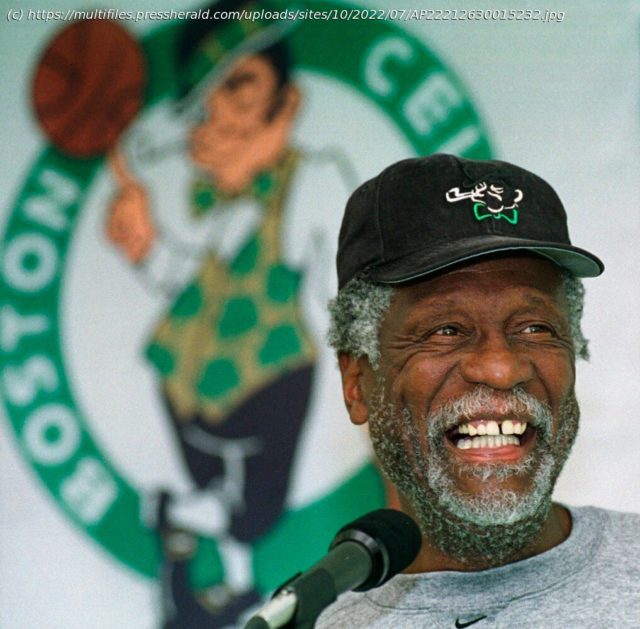It would be a disservice – an insult, really – to look at Bill Russell as only a basketball player, even as one of the greatest ever.
Bill Russell hated autographs. Saw no point to them. If he was out dining and got approached by someone asking for his signature, Russell’s usual response was to instead ask the person to join him at the table to have a conversation about life.
The autograph-seekers almost always declined.
Oh, the stories they missed.
Russell, the greatest winner in the history of team sports, died Sunday at 88. The basketball legacy is beyond well-known: 11 championships in 13 years with the Boston Celtics, first Black coach in the NBA, first Black coach to win an NBA title, Hall of Fame player, Hall of Fame coach, Olympic champion, NCAA champion, member of the league’s 75th anniversary team, and the namesake of the NBA Finals MVP award which, had it existed when he played, he would have won at least a half-dozen times.
But if those souvenir hounds had taken Russell up on the chance to sit with him for a meal, they might have heard about his obsession with golf. Or the mating habits of bees, something he penned a column about once. Or expensive cars with souped-up sound systems so he could blare the music of Laura Nyro, Janis Ian, or Crosby, Stills and Nash – some of his favorites.
“His mind was bigger than basketball,” author Taylor Branch, who spent about a year living with Russell near Seattle in the 1970s while working with him on a book, said Sunday. “And so was his personality, as great as he was in basketball.”
Take away all the on-court accomplishments, and Russell still lived a life.
He stood side-by-side with Dr. Martin Luther King Jr. in the 1960s, the height of the civil rights movement. He was in the audience when King delivered the “I Have A Dream” speech in Washington in 1963. He marched in Mississippi after the slaying of civil rights leader Medgar Evers. He supported Muhammad Ali when the fighter refused to go to Vietnam.






